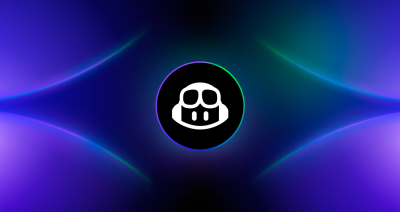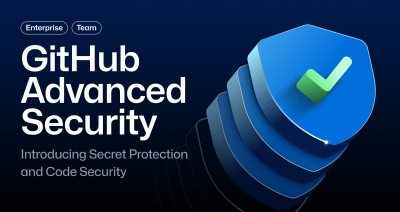
GitHub Advisory Database by the numbers: Known security vulnerabilities and what you can do about them
Use these insights to automate software security (where possible) to keep your projects safe.

Use these insights to automate software security (where possible) to keep your projects safe.

Stricter requirements are being enforced for application authentication and cross-organization access

We’ve introduced a new Dependabot metrics section in the Security tab, available at the organization level. This update helps application security managers cut through the noise and focus on remediating…

We’ve added a “time to remediate” metric for GitHub CodeQL pull request alerts on the security overview dashboard. Now, you’ll see how quickly your team resolves code scanning vulnerabilities on…

Dive into the novel security challenges AI introduces with the open source game that over 10,000 developers have used to sharpen their skills.

CodeQL scans on pull requests for JavaScript, TypeScript, Java, Ruby, and Python are now up to 20% faster. This is powered by our new incremental analysis, which only analyzes new…

In the context of GitHub Actions runners, virtual network (vNet) is an Azure Virtual Network that provides network isolation, enhanced security, and private connectivity for runners deployed in a controlled…

This May marks the fifth annual Maintainer Month, and there are lots of treats in store: new badges, special discounts, events with experts, and more.

Actions Runner Controller (ARC) is a Kubernetes operator that automates the deployment, scaling, and lifecycle management of self-hosted actions runners within a Kubernetes cluster. It enables dynamic provisioning of runners…

For customers affected by ongoing grace periods, GitHub will automatically update the enable for new repositories security configuration setting for customers not opted out. This change helps you avoid unexpected…

GitHub code scanning now offers enhanced security protection for your GitHub Actions workflow files through CodeQL analysis, which is now generally available. This feature enables you to identify and remediate…

Learn how to leverage GitHub Copilot to make your code more secure.

Security should be native to your workflow, not a painful separate process.

Starting today, security campaigns are generally available for all GitHub Advanced Security and GitHub Code Security customers—helping organizations take control of their security debt and manage risk by unlocking collaboration between developers and security teams.

Security campaigns with Copilot Autofix are now generally available. As part of GitHub Code Security, you can use security campaigns to prioritize and rapidly reduce your backlog of application security…

At GitHub, we believe that investing in the security of your codebases should be straightforward, affordable, and scalable. Today, we’re rolling out standalone GitHub Advanced Security products for GitHub Enterprise…

At GitHub, we believe that investing in the security of your codebase should be accessible for organizations of all sizes. Starting today, GitHub Team plan customers can purchase GitHub Secret…

The cvss field for GitHub security advisories in the REST and GraphQL APIs will be deprecated in favor of the new cvss_severities field. cvss will be removed from the REST…

GitHub Copilot isn’t just for developers! Discover how product managers, security professionals, scrum masters, and more use GitHub Copilot to streamline tasks, automate workflows, and boost productivity across teams.

At GitHub, we believe that investing in the security of your codebases should be straightforward, cost-effective, and accessible for everyone. Today, we’re announcing changes to pricing plans and availability of…

Scaling your GitHub usage just got easier! We are expanding our pay-as-you-go usage-based billing and licensing reporting interface to include GitHub Enterprise (GHE) and GitHub Advanced Security (GHAS) Server-only usage.…
Build what’s next on GitHub, the place for anyone from anywhere to build anything.
Last chance: Save $700 on your IRL pass to Universe and join us on Oct. 28-29 in San Francisco.